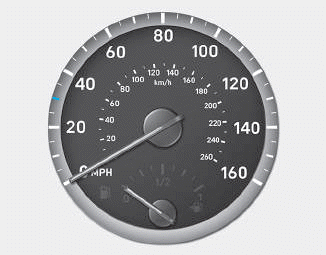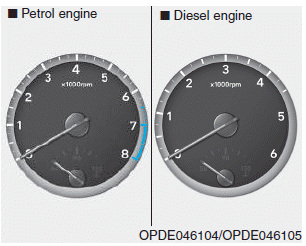Hyundai i-30: Auto Lighting Control System / Description and operation
Hyundai i30 (PD) 2018-2025 Service Manual / Body Electrical System / Auto Lighting Control System / Description and operation
| Description |
It's a system that uses illumination sensor to automatically turn ON the tail
lamp and head lamp based on the change in surrounding environment's illumination
condition. It activates when the vehicle enters/exits tunnel, or when the illumination
condition in surrounding environment changes due to rain, snow, or fog. Precautions
corresponding to the use of this system are as follows.
| 1. |
Do not add another device on top of this device.
|
| 2. |
Be sure to switch to manual during poor visibility climate, such as
fog, heavy rain, or cloudy weather.
|
| 3. |
Illumination intensity in an actual vehicle is not always constant,
and lamp ON/OFF time may very depending on the climate, season, and
surrounding environment.
|
| 4. |
Use this system only during sunrise and sunset period, and manually
control lamp ON/OFF for general conditions.
|
| 5. |
Error may occur if light block coating that may change interior illumination
is applied.
|
 Auto Light Sensor
Auto Light Sensor
Repair procedures
Inspection
Check if the auto light control operates like a timing chart shown below. Tail
lamp output and head lamp (Low) output is controlled based on the auto light
sensor's input (illumination intensity) when the Auto Light Switch in Multi-Function
Switch is turned ON, and the vehicle is in IGN1 or IGN2 ON Mode...
Other information:
Hyundai i30 (PD) 2018-2025 Service Manual: Floor Console Assembly
Components and components location Component Location [General console] 1. Floor console assembly [EPB console] 1. Floor console assembly Repair procedures Replacement [General console] • Put on gloves to prevent hand injuries...
Hyundai i30 (PD) 2018-2025 Service Manual: Repair procedures
Operating Condition for the ISG function 1. Auto stop or Auto start condition ▶ If all of the below conditions are satisfied • If the following conditions are not met, entry into the ISG system is prohibited...
Categories
- Manuals Home
- 3rd Generation i30 Owners Manual
- 3rd Generation i30 Service Manual
- Cruise control
- Engine compartment
- Recommended lubricants and capacities
- New on site
- Most important about car
Gauges and meters
Speedometer

The speedometer indicates the speed of the vehicle and is calibrated in kilometers per hour (km/h) and/or miles per hour (MPH).
Tachometer

Copyright © 2025 www.hi30.net

